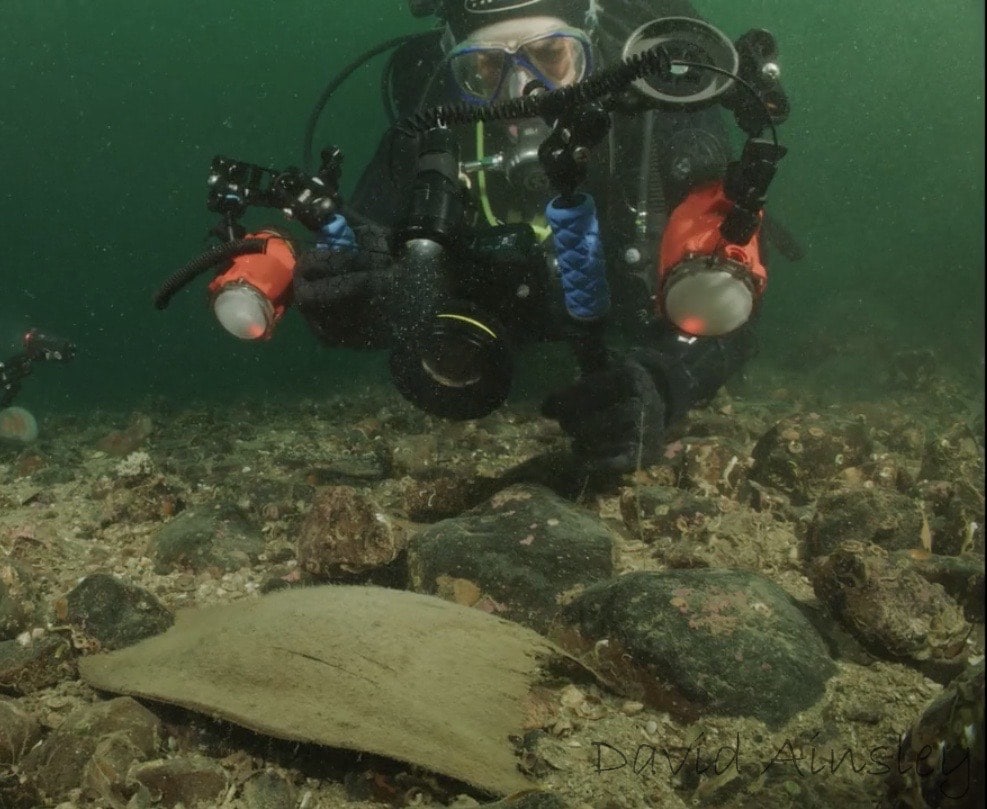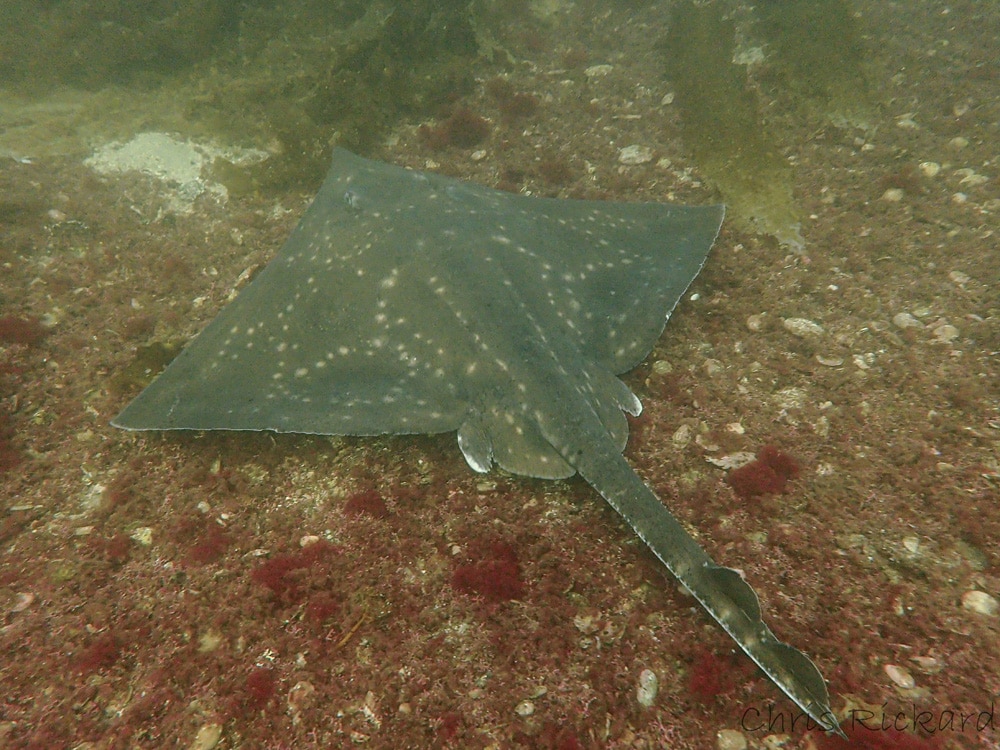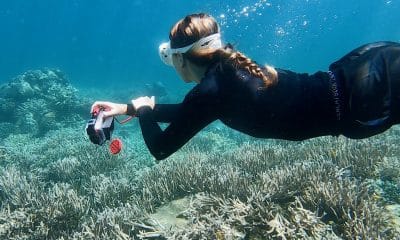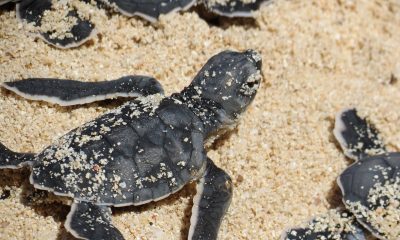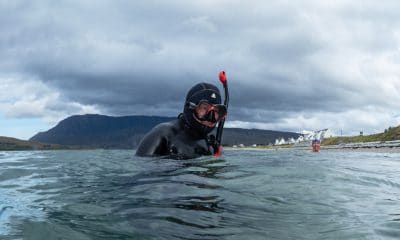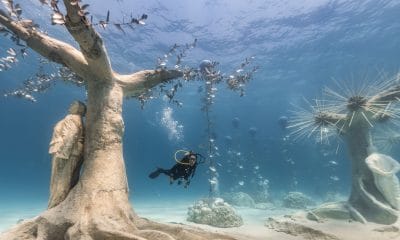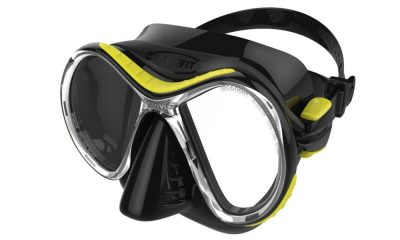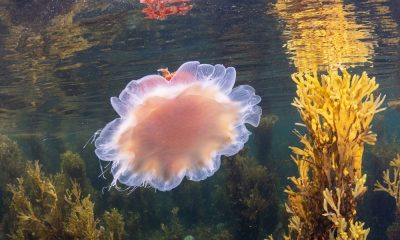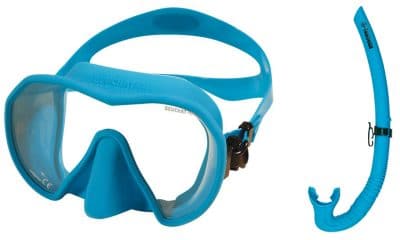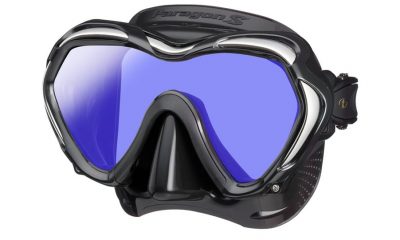News
Egg-laying site of critically endangered skate discovered by Scottish divers

Over a hundred eggs belonging to the critically endangered flapper skate – previously known as the common skate – have been discovered on the rocky seabed off the north west coast of Scotland. This is the biggest and most important egg-laying site discovered to date, but it is vulnerable to trawling and dredging.
Capable of reaching over 2.5 metres (8.2ft) in length, the flapper skate is one of the largest skate species in the world. Once common in British waters, including areas like the North Sea’s Dogger Bank, it is now extinct in most of its former range. The west coast of Scotland is one of the last places it can be found, and the skate is one of 81 Priority Marine Features the Scottish Government is committed to protecting. However, despite being made aware of the site in 2019, no action has been taken by Marine Scotland to protect the charismatic species.
The discovery comes almost a year after divers recorded egg-cases at the same site in November 2019 and reported the findings to Marine Scotland. Since 2009, it has been illegal for fishermen to commercially target flapper skates, but the giant, slow-growing species is still at risk of capture and has been devastated by hundreds of years of bottom-trawling.
Flapper skate egg-cages can be over 25cm long and take almost 18 months to hatch, making them vulnerable to incidental capture or damage by fishing gears. The details of their life cycle are unclear because they are now so rare.
Volunteer divers, with the help of local fishermen, found the eggs known as mermaid’s purses nestled between small rocks. Over one hundred eggs of different sizes and ages were found, indicating that the site is home to a resident population of skate.
Chris Rickard, Underwater photographer and Conservationist said: “Having observed well over 100 purses at this site, I believe the area is being used by multiple females over many years. Unfortunately, both the purses themselves and the newly hatched young are so large that they can be caught in bottom towed gear and destroyed – a single pass with a dredge could obliterate the site.”
Divers, local fishermen and experts are now calling on the Scottish Government to take immediate action by designating a marine protected area and bring in an emergency conservation order to close it to bottom towed fishing gears.
Ailsa McLellan, Coalition Coordinator at Our Seas, said: “The Scottish Government continues to fail to step up to its duties and deliver the protection that is needed. Less than 5 per cent of our inshore waters are permanently protected from bottom towed fishing gear and even these Marine ‘Protected’ Areas are still fished illegally. We are living through a biodiversity crisis and we need to act quickly to protect what is left.”
The Scottish Government is duty bound to protect and recover the seas. It designated the Loch Sunart to Sound of Jura Marine Protected Area to look after this species in 2014 but still has an obligation to protect an additional site. There are also obligations under the Scottish Government’s own national marine plan to ensure that priority species, such as this, are not harmed, and that nursery grounds are looked after.
Bally Philip from the Scottish Creel Fishermen’s Federation said: “As a local fisherman and representative of the Scottish Creel Fishermen’s Federation, this has been a great opportunity to showcase what can be achieved when fishing communities and conservationists work together. We have already written to our MSP and Environment Minister to inform them that the creel fishermen fully support restorations on some fishing in this area to ensure this critically endangered species is afforded the protection it requires.”
These calls for action join the voices of communities around Scotland’s coast calling on the Scottish Government to protect its seas. Marine protected areas currently cover around 30 per cent of Scotland’s territorial waters, yet about 95 per cent of Scotland’s inshore waters remain unprotected from trawling and dredging, two of the most damaging methods of fishing.
Charles Clover, Executive Director of Blue Marine Foundation, said: “The level of protection that a critically endangered animal such as the common or flapper skate currently receives in UK waters is utterly inadequate to the needs of the species. There are too few protected areas – particularly in Scotland – and other designated areas in UK waters, such as the Dogger Bank, receive far too little protection. We need to change the way our seas are managed or give up completely trying to conserve endangered species.”
For more information about the Blue Marine Foundation visit their website by clicking here.
News
Free guided snorkel trip for serving Armed Forces members this Saturday
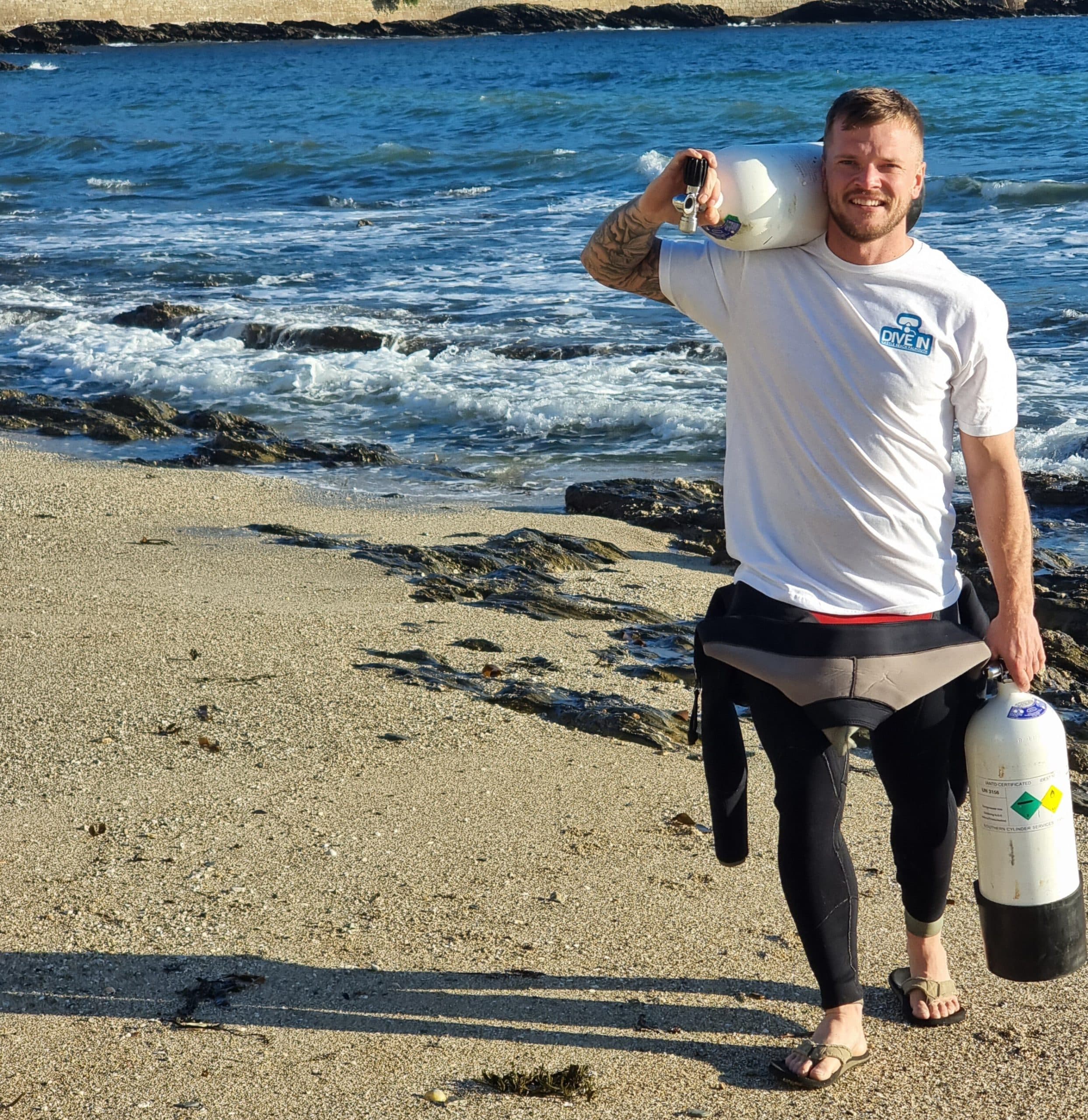
To mark Armed Forces Day on Saturday 24th June 2023, PADI Dive Centre, Dive In Falmouth, is offering serving members of the Armed Forces and a guest the opportunity to enjoy a free guided snorkel around the Falmouth Coast in Cornwall.
Armed Forces Day is an annual event in the UK celebrated to commemorate the service of men and women in the British Armed Forces.
Dan McColl, a 34-year-old Falmouth resident is Lead Instructor and Founder at Dive In Falmouth. Dan is an ex Royal Marine Commando and Royal Naval Mine Clearance Diver with experience in military, commercial and recreational diver.

Dan tells us: “I have always had a passion for the ocean and am equally passionate about supporting the Armed Forces. I wanted to show my gratitude for the men and women that serve this country by giving back with a special underwater adventure this Armed Forces Day.”
Based on Castle Beach in Falmouth, Dan and his team will provide free guided snorkel trips throughout the day. Attendees will have the opportunity to discover the amazing underwater world around the stunning Cornwall coastline and depending on the weather will see incredible marine life ranging from catsharks and cuttlefish to spider crabs, seals, lobsters and lots more.
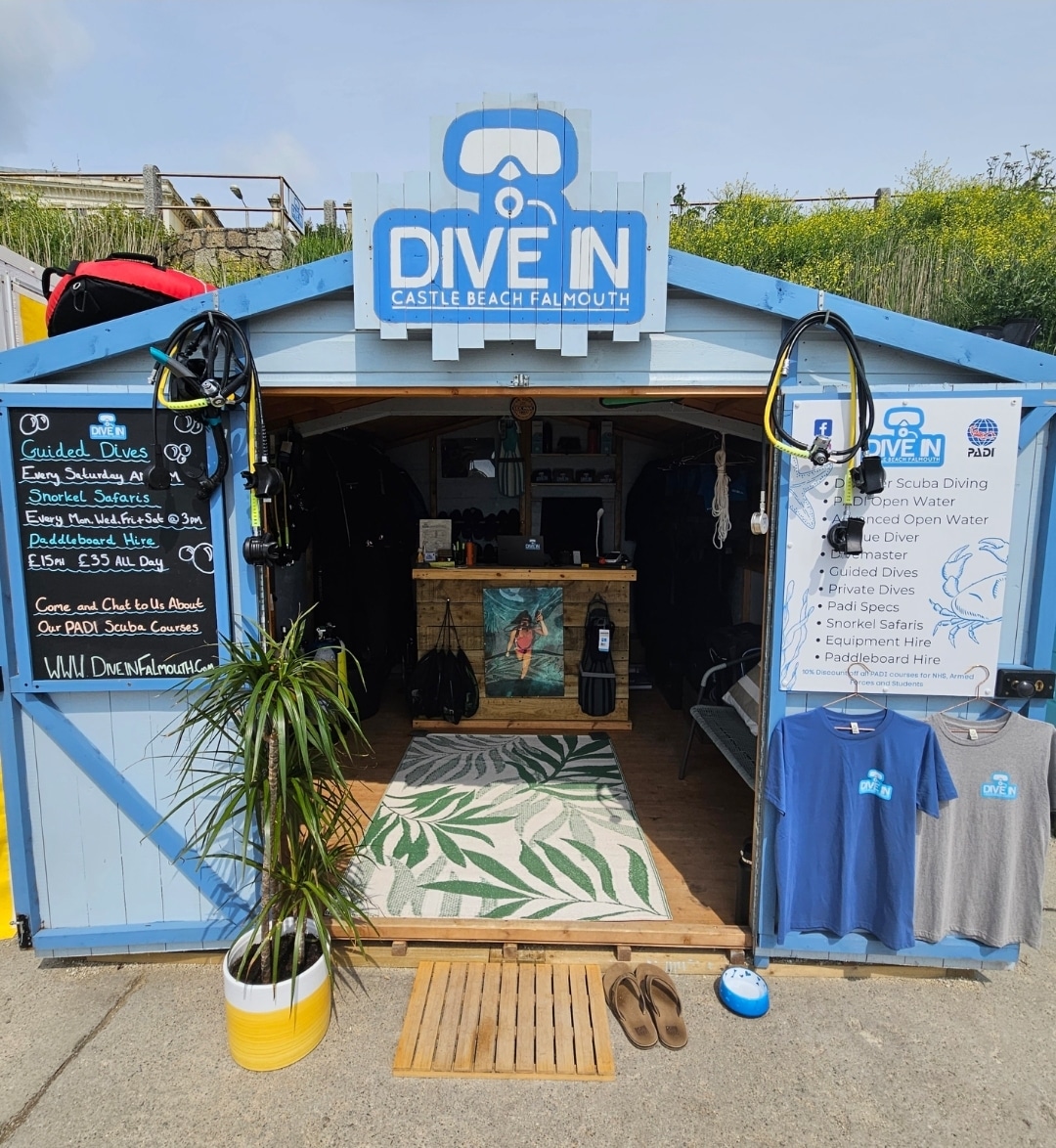
Dive In Falmouth offer a range PADI scuba diving courses from Discover Scuba Diving for complete novices through to Open Water certifications, all the way up to Divemaster.
If you are a serving member of the Armed Forces and would like to join Dan and his team for an exciting snorkelling experience, please email: Contactus@diveinfalmouth.com or call 07361 541119 to secure your space.
PADI Dive Centre, Dive In Falmouth offer a 10% discount on all their PADI courses for students, NHS workers and member of the Armed Forces throughout the year. For more information visit: www.diveinfalmouth.com
Blogs
The Suit Ocean Team leads the Ultimate Curacao Snorkeling Adventure
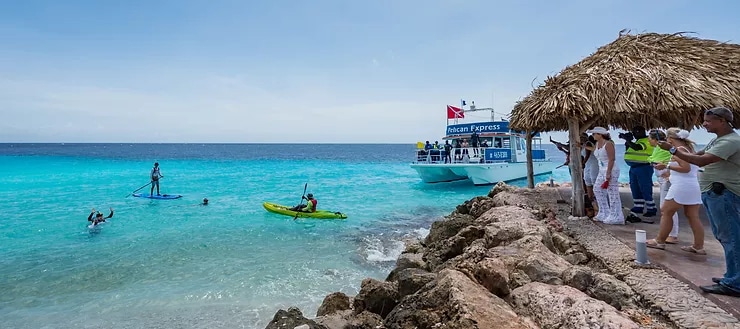
As passionate residents of our Dutch Caribbean Island, we must congratulate The Suit Ocean Team for creating more awareness about the importance of protecting our beautiful fringing reef systems in Curacao.
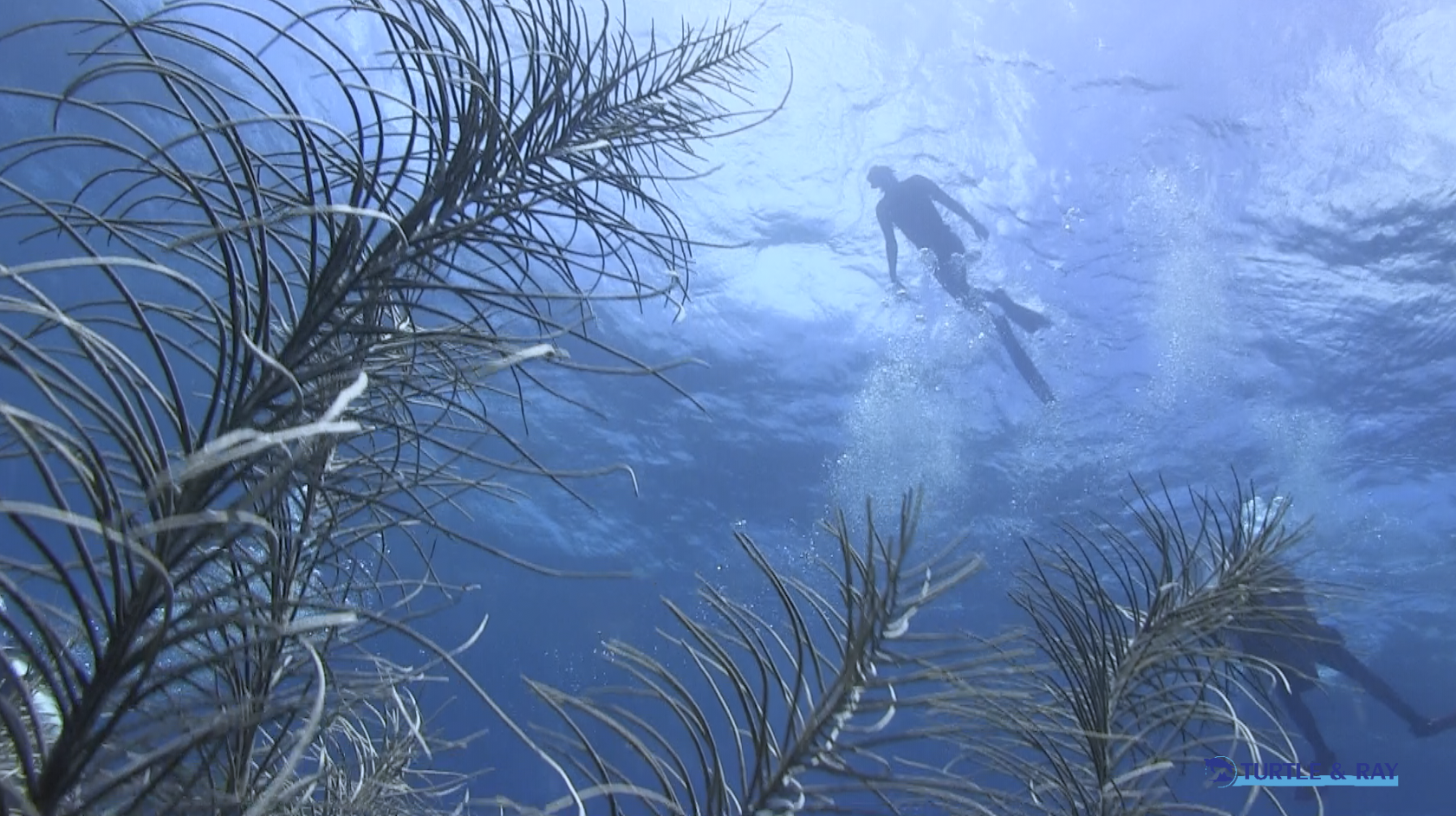
The film, Curacao Underwater Kunuku (Kunuku is Papiamento for Garden), not only documents this ultimate snorkeling adventure showing you how easy it is for everyone to access and enjoy a snorkel or diving experience, but it also showcases the interaction between man and nature, highlighting the beauty of underwater life while promoting conservation, preservation and the need to protect these vital habitats.
These are the key ingredients to this beautiful short film documentary. Watch NOW and please enjoy our “CURACAO UNDERWATER KUNUKU”.
This film, produced by the Lawrence Mensa Foundation (LMF), is also available in multiple languages including: Spanish, Papiamentu, Dutch, Portuguese and German.


